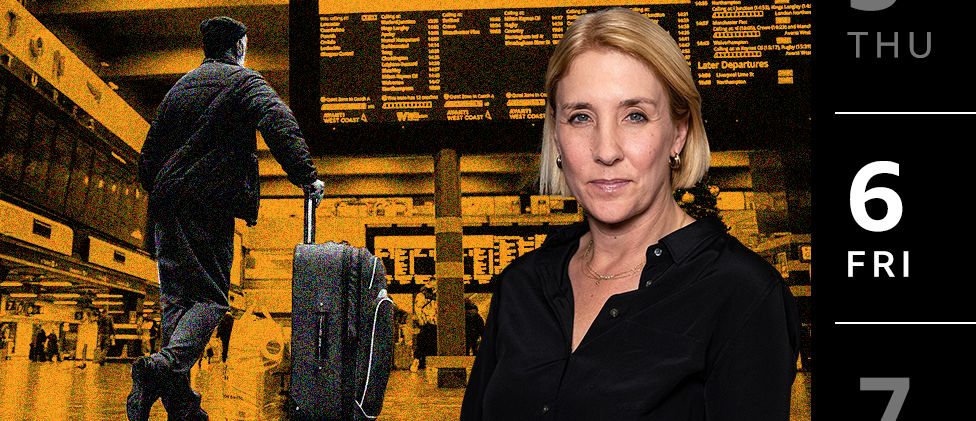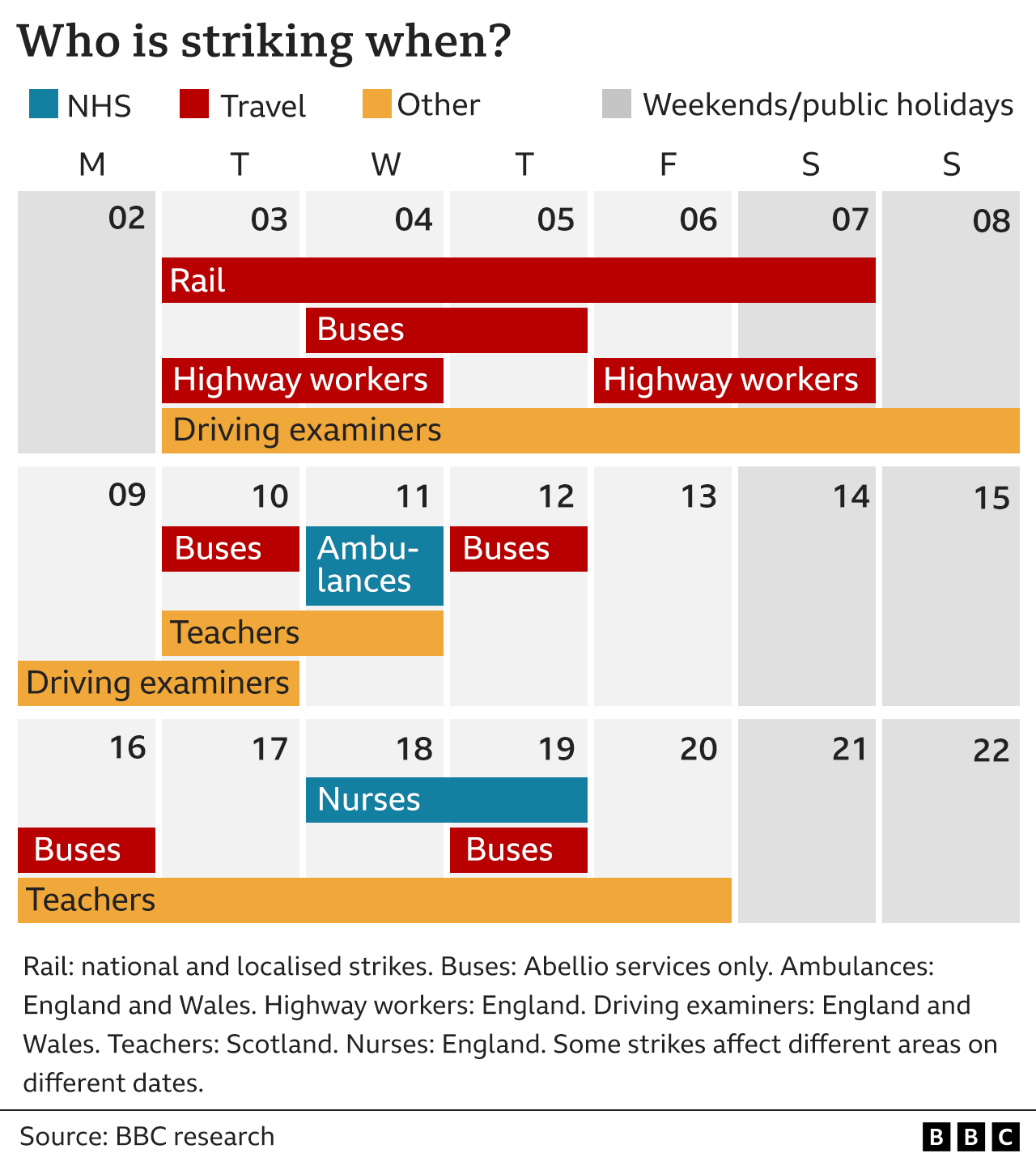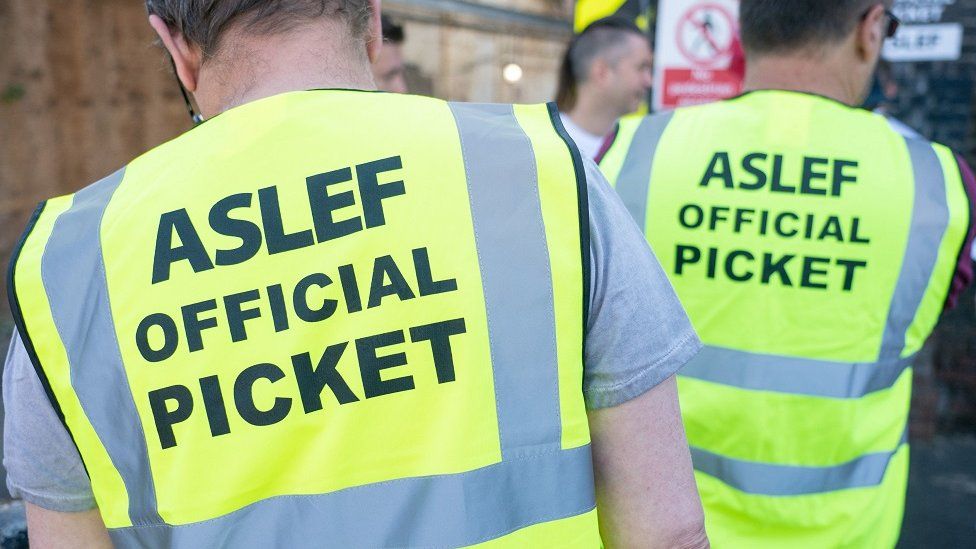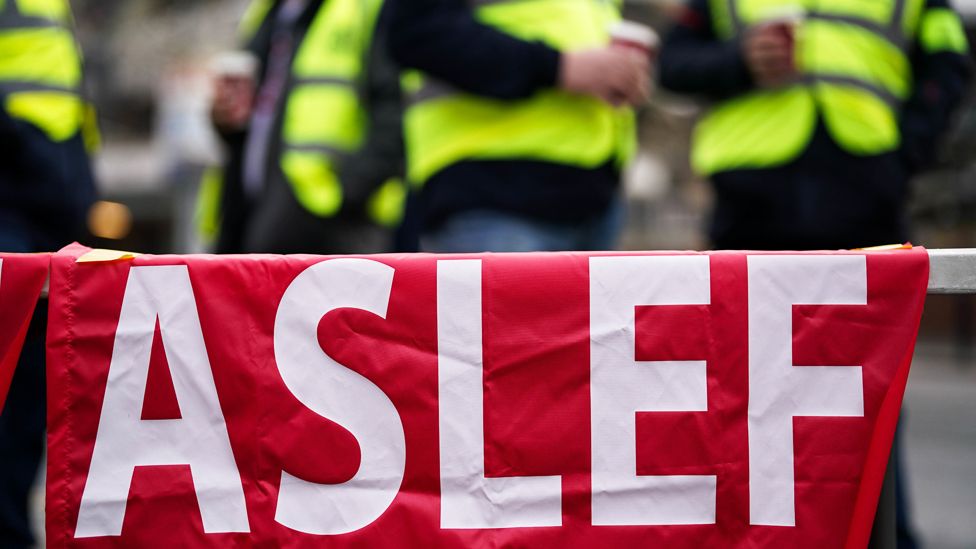
Trains are set to be disrupted yet again on Friday, as rail workers in the RMT union begin their second 48-hour strike this week.
The advice to rail passengers remains to travel only if “absolutely necessary”, with four out of five trains set to be cancelled.
Network Rail said about 20% of Britain’s usual train services are expected to run under the reduced strike-day timetable in place on Friday.
Driving examiners and road workers are also striking in some parts of the country.
You can read more or watch this report about why people are taking strike action, and below you can find information on how it could affect you.
Train strikes across England, Scotland and Wales
Strike action by the UK’s largest rail union, the RMT, resumes again, with the second 48-hour walkout this week beginning on Friday and continuing on Saturday.
The action is part of a long-running dispute over pay, job security and conditions.
Some areas will have no trains at all and services that do run will start later and finish much earlier than usual, typically running between 7:30am and 6.30pm on the days of the strike.
Chiltern Railways is not running any trains at all on Friday.
The advice is to avoid taking trains on Friday if you can, but if you must travel:
- Make sure you check your train-operating company’s website before setting out
- Be prepared for no services early in the morning or late at night
- Allow extra time for your journey
Sunday is the only strike-free day on the railways this week, but services are not expected to get back to normal until Monday 9 January.
Driving tests
Driving examiners in the Public and Commercial Services (PCS) union are striking at test centres in London, south-east England, south-west England and Wales.
The action means some practical tests will not take place, although theory tests should go ahead.
If you are due to take your driving test on Friday, you can check here whether your test centre is one of those affected. But unless you are told your test is definitely cancelled, you should still turn up. Not all driving examiners are members of the union backing the strikes, so your test may take place as planned.
If your test is cancelled because of the strike, the DVSA will automatically rebook your test for you.
Other strikes
Some National Highways workers in the East Midlands and eastern England are striking on Friday. The action involves control centre staff and traffic officers who deal with the aftermath of accidents.
The PCS union says about 16 workers in the two regions are walking out.
National Highways says the strikes have caused “minimal” impact so far, adding that it has “well-rehearsed resilience plans in place”.
However, it warns roads in general could be busier than usual because of the walkouts taking place on the railways.

- Check out our full rundown of all the January strikes
- What are trade unions and who can go on strike?
Follow Zoe Conway on Twitter


How are you affected by the strikes? Are you taking part in strike action? You can email: haveyoursay@bbc.co.uk.
Please include a contact number if you are willing to speak to a BBC journalist. You can also get in touch in the following ways:
- WhatsApp: +44 7756 165803
- Tweet: @BBC_HaveYourSay
- Or fill out the form below
- Please read our terms & conditions and privacy policy
If you are reading this page and can’t see the form you will need to visit the mobile version of the BBC website to submit your question or comment or you can email us at HaveYourSay@bbc.co.uk. Please include your name, age and location with any submission.
-
Employers could sue unions in new anti-strike laws
-
1 hour ago

-
-
Train drivers’ union warns strikes could escalate
-
14 hours ago

-





